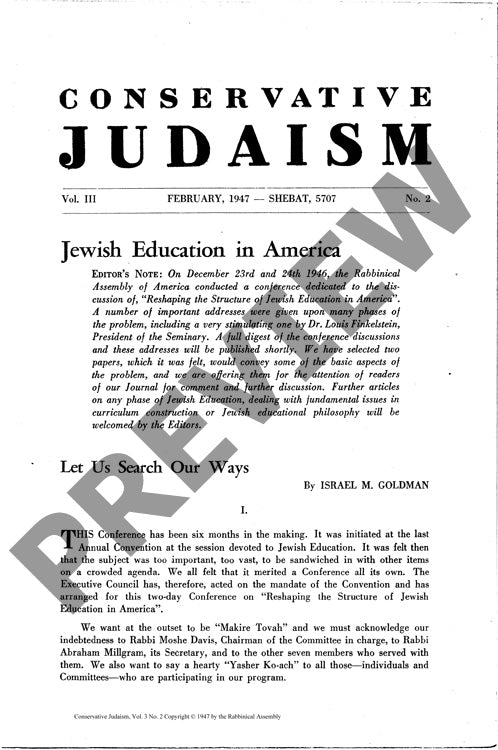Jewish Education in America Let Us Searc
Couldn't load pickup availability
American Jewish education stood at a critical crossroads in 1946, as religious leaders gathered at the Rabbinical Assembly of America to confront mounting evidence of educational failure. Through qualitative analysis of conference proceedings, addresses, and discussions, a stark picture emerged: congregational schools were falling short of their missions, and Sunday schools—despite their popularity—proved dramatically insufficient for meaningful Jewish education. The conference revealed a troubling paradox within American Jewish life: while philanthropy flourished, spiritual and educational development languished, threatening the foundations of Jewish identity. Analysis of the proceedings highlights three urgent imperatives: reestablishing Jewish education as the cornerstone of American Jewish communities, reclaiming rabbis' primary roles as educators rather than delegating to administrators, and undertaking rigorous assessment of existing educational frameworks. The research documents calls for radical restructuring, including the proposed elimination of Sunday schools within five years in favor of more intensive educational models such as all-day Hebrew schools and enhanced congregational programs. Without such fundamental reforms, conference participants warned, American Judaism risked spiritual insolvency and the erosion of authentic Jewish identity in subsequent generations.

More Information
-
Physical Description
-
Publication Information
Published 1947
ISBN
-
Publication Credits
Israel Goldman

